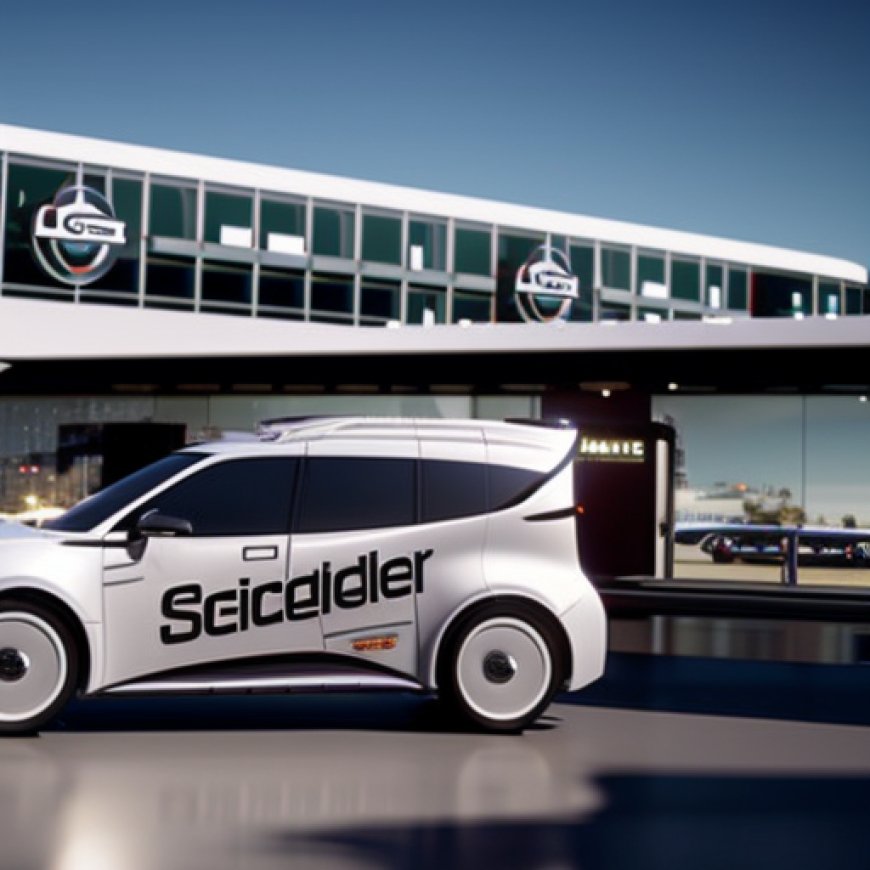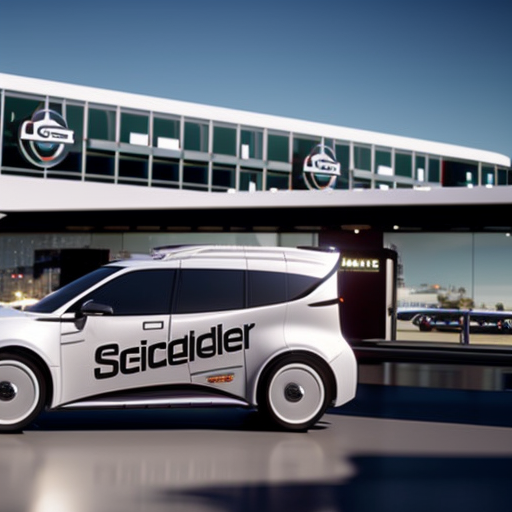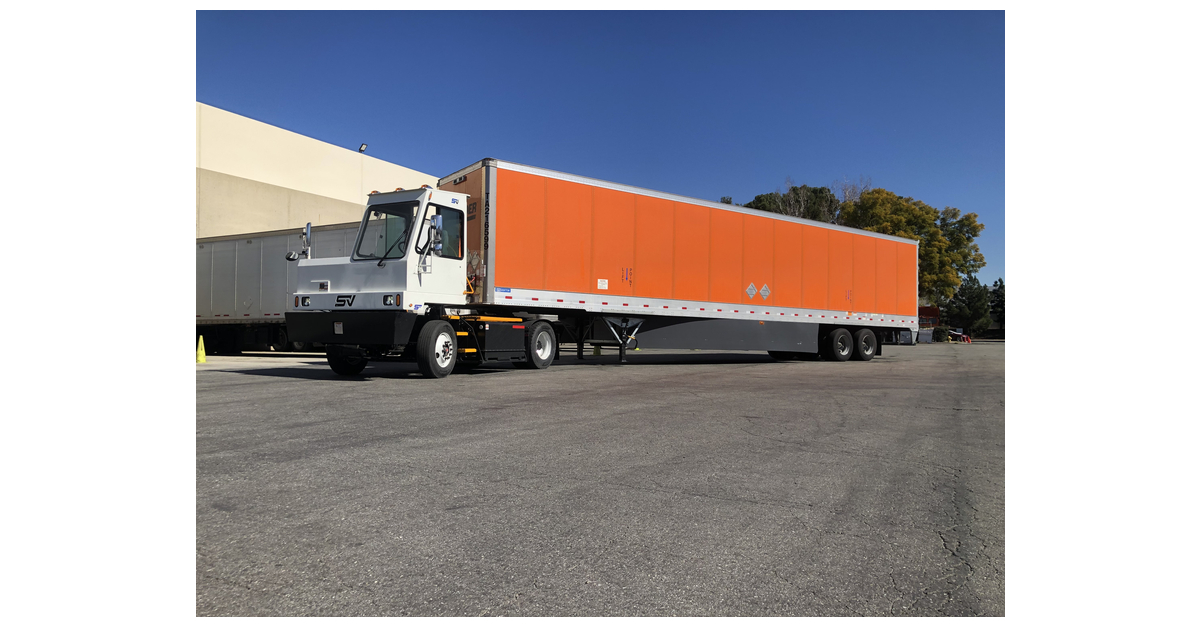Schneider adds more battery electric vehicles to its southern California fleet
Schneider adds more battery electric vehicles to its southern ... Business Wire


Schneider Advances Commitment to Sustainable Development Goals with Electric Terminal Tractors

Introduction
Schneider National Inc. (NYSE: SNDR), a premier multimodal provider of transportation, intermodal, and logistics services, has announced the deployment of two Lonestar Specialty Vehicles battery electric terminal tractors. This move further demonstrates Schneider’s commitment to reducing carbon emissions and expanding its electric fleet, which now consists of 94 vehicles.
Terminal Tractors for Sustainable Operations
The Lonestar S22 terminal electric tractors, also known as yard spotters, are being utilized at Schneider’s Rancho Cucamonga, CA cross dock to move trailers. These electric tractors have replaced two diesel units, aligning with Schneider’s goal of transitioning to zero-emission vehicles.
Efficient and Eco-Friendly Performance
Each electric tractor has the capability to operate for a full 24-hour period before requiring a recharge. The estimated time for a full charge is approximately one and a half hours. This efficiency allows for continuous operations while minimizing downtime.
Significance of Electric Tractors
Jake VandeLoo, Schneider’s Vice President of Equipment Engineering, emphasizes the importance of implementing these electric tractors in achieving their sustainability goals. The addition of these units contributes to a significant reduction in carbon footprint, estimated at 35 tons of CO2 per truck annually.
Jay Simmons, President of Lonestar, highlights the role of terminal tractors in facilitating the transition to electrified fleets. Terminal tractors operate within yards or short shuttles, eliminating range anxiety and infrastructure complications associated with over-the-road vehicles. Lonestar is proud to support Schneider’s sustainability efforts and looks forward to helping them achieve their future goals.
Collaboration for Sustainable Growth
Schneider’s collaboration with Lonestar represents a strategic investment in supporting the company’s long-term sustainability objectives. With one of the largest electric fleets in North America, Schneider aims to drive positive change in the industry while minimizing environmental impact.
Conclusion
Schneider’s deployment of electric terminal tractors marks a significant milestone in their commitment to the Sustainable Development Goals (SDGs). By expanding their electric fleet and reducing carbon emissions, Schneider is actively contributing to a more sustainable future.
References:
- Schneider’s Sustainability Initiatives
- Regional Haul
- Long-Haul Truckload
- Truckload
- Expedited
- Dedicated
- Bulk
- Intermodal
- Brokerage
- Warehousing
- Supply Chain Management
- Port Logistics
- Logistics Consulting
About Schneider
Schneider is a premier provider of transportation, intermodal, and logistics services. With over $6.6 billion in annual revenue, Schneider offers a comprehensive range of solutions to meet diverse customer needs. The company’s commitment to innovation and sustainability spans over 85 years.
For more information about Schneider, please visit their official website: Schneider.com.
Source: Schneider SNDR
SDGs, Targets, and Indicators
1. Which SDGs are addressed or connected to the issues highlighted in the article?
- SDG 7: Affordable and Clean Energy
- SDG 9: Industry, Innovation, and Infrastructure
- SDG 11: Sustainable Cities and Communities
- SDG 13: Climate Action
- SDG 17: Partnerships for the Goals
The article discusses Schneider National Inc.’s commitment to lowering carbon emissions and expanding its electric fleet. This aligns with SDG 7, which aims to ensure access to affordable, reliable, sustainable, and modern energy for all. The use of battery electric terminal tractors also relates to SDG 9, which focuses on promoting sustainable industrialization and fostering innovation. Additionally, the article mentions Schneider’s deployment in California, indicating a connection to SDG 11, which aims to make cities and human settlements inclusive, safe, resilient, and sustainable. The reduction of CO2 emissions contributes to SDG 13, which addresses climate action. Finally, the collaboration between Schneider and Lonestar demonstrates a partnership for the goals, as highlighted in SDG 17.
2. What specific targets under those SDGs can be identified based on the article’s content?
- SDG 7.3: By 2030, double the global rate of improvement in energy efficiency
- SDG 9.4: By 2030, upgrade infrastructure and retrofit industries to make them sustainable
- SDG 11.6: By 2030, reduce the adverse per capita environmental impact of cities, including by paying special attention to air quality and municipal and other waste management
- SDG 13.2: Integrate climate change measures into national policies, strategies, and planning
- SDG 17.17: Encourage and promote effective public, public-private, and civil society partnerships, building on the experience and resourcing strategies of partnerships
Based on the article’s content, the specific targets that can be identified include improving energy efficiency (SDG 7.3), upgrading infrastructure for sustainability (SDG 9.4), reducing environmental impact in cities (SDG 11.6), integrating climate change measures into policies (SDG 13.2), and promoting partnerships for sustainable development (SDG 17.17).
3. Are there any indicators mentioned or implied in the article that can be used to measure progress towards the identified targets?
- Reduction in carbon emissions (tons of CO2 saved per truck each year)
- Number of battery electric terminal tractors deployed
- Charging time for the electric tractors (estimated hour and a half for a full charge)
The article mentions that the new electric tractors will save an estimated 35 tons of CO2 per truck each year. This reduction in carbon emissions serves as an indicator of progress towards the targets related to energy efficiency, infrastructure sustainability, and climate action. The number of battery electric terminal tractors deployed can also be used as an indicator to measure progress towards the targets. Additionally, the charging time for the electric tractors (estimated hour and a half for a full charge) can indicate the efficiency and feasibility of using electric vehicles in the transportation industry.
4. Table: SDGs, Targets, and Indicators
| SDGs | Targets | Indicators |
|---|---|---|
| SDG 7: Affordable and Clean Energy | 7.3: By 2030, double the global rate of improvement in energy efficiency | Reduction in carbon emissions (tons of CO2 saved per truck each year) |
| SDG 9: Industry, Innovation, and Infrastructure | 9.4: By 2030, upgrade infrastructure and retrofit industries to make them sustainable | Number of battery electric terminal tractors deployed |
| SDG 11: Sustainable Cities and Communities | 11.6: By 2030, reduce the adverse per capita environmental impact of cities, including by paying special attention to air quality and municipal and other waste management | Reduction in carbon emissions (tons of CO2 saved per truck each year) |
| SDG 13: Climate Action | 13.2: Integrate climate change measures into national policies, strategies, and planning | Reduction in carbon emissions (tons of CO2 saved per truck each year) |
| SDG 17: Partnerships for the Goals | 17.17: Encourage and promote effective public, public-private, and civil society partnerships, building on the experience and resourcing strategies of partnerships | Number of battery electric terminal tractors deployed |
Behold! This splendid article springs forth from the wellspring of knowledge, shaped by a wondrous proprietary AI technology that delved into a vast ocean of data, illuminating the path towards the Sustainable Development Goals. Remember that all rights are reserved by SDG Investors LLC, empowering us to champion progress together.
Source: businesswire.com

Join us, as fellow seekers of change, on a transformative journey at https://sdgtalks.ai/welcome, where you can become a member and actively contribute to shaping a brighter future.







